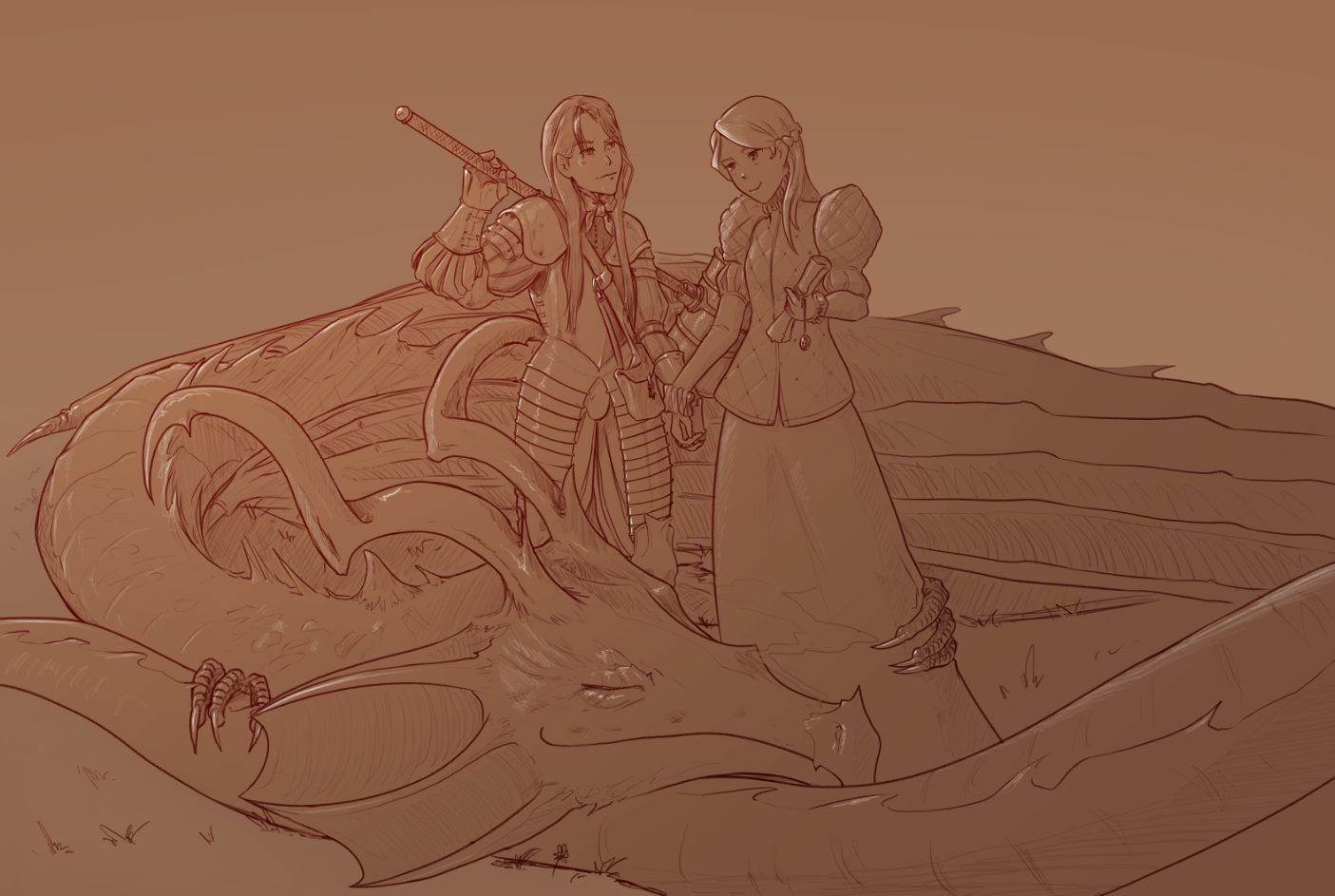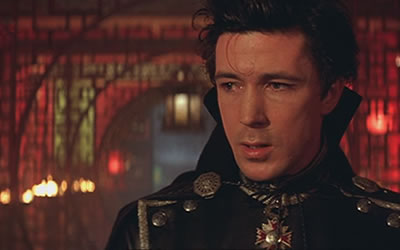(Written by
@Havocfett with my approval)
Blood in the Snow
The first actions in the Middenland War would be taken at Carroburg, before the campaign season even began. Militias would be raised en masse, nobles levied for war. Whatever fervor the Pact had over recent transgressions, over the Union's perceived betrayal, the Drakwald made up for it with simple, unyielding hatred for their former overlords. Henryk von Bildhofen had been promised that he could keep anything he took during this war, and he intended to take full advantage.
But this close to Carroburg, Middenland was far from defenseless. Scouts in the forests, garrisons in the towns, and, more importantly, monsters. Ulrics kin and Taal's favored. Great stags and terrible werewolves, stalking between the trees, tearing at militias where they could, turning the land against their foe.
But this was the Drakwald as much as it was Middenland. The peasants land as much as the monsters, and they gave as good as they got. Corpses littered the Mirror Moors and the Drakwald's forests, and as Henryk found himself falling behind schedule he called his advance early, setting garrisons as he returned to Carroburg for the War. By the time he returned home, the moors south of the River Kristall were Carroburg's to hold.
The Ash Princess Rides
The Cult of Taal had been offered a singular honor. To mediate bribes for The Dragon's service. This new role found use immediately, as Middenland and the Cult of Ulric put forth truly immense sums of money to generate the hammer-blow they needed.
As the first of winter's snows began to melt, The Ash Princess descended from her peak.
Heat radiated from her in waves, and for miles about villages swore that spring was coming early. Aqshy waxed with her coming, and for days caravans would deliver wealth to the Cult of Taal who, in turn, would ferry it up the mountain.
Crocodilian didn't even know she was coming.
A lance of raw
Aqshy accompanied the dawn, setting the flagship ablaze as the fleet prepared to sail for Altdorf. Prepared to muster for the war ahead. Sailors scrambled and crews manned their guns, but too late. The Dragon was upon them.
Firey breath swept across the fleet. Powder-stores detonated, ships burned, and sailors jumped from their ships and swam for shore. Within minutes, the deed was done. What few ships had survived fled south, the Union's warships chasing them all the way to Altdorf, stalking the survivors like wolves among sheep. Only at Altdorf itself did they break off the pursuit, retreating back north with their plunder and their share of glory, the city's massive cannons having warned them off.
For all intents and purposes, Crocodilian was destroyed.
Hammerblow
But it wasn't enough. The armies would gather at Altdorf, march from Altdorf, and the Marienburg fleet would sweep the river, besides. Already, ships with thrice-slashed sails ventured up the Talabec, slaughtering Union shipping and tearing apart patrol crews; pirates, northern reavers, a hundred different kinds of scum whose sins Marienbug promised to annul in exchange for service. No, the Union's commanders knew, their plan relied upon keeping the Pact from forming its forces, ensuring that the great guns of Nuln could not be brought to bear.
So as Marienburg rallied her fleets, slowed, always slowed, by lobbying and complaint, Talabecland's ships stole down the rivers, weighted down with troops. They relied on tributaries and cover of night to get upon the Stir and sneak past Kemperbad. Then, between Altdorf and Nuln, they waited.
And when they saw the false-Emperor's banners on the march, saw his dragon in the skies, they struck.
Marine-Knights and wolf-priests, supplemented by Kislevite mercenaries and Middenlander troops, disembarked from the ships of the Talabec. Eagles swooped from a sunny sky, which grew more dark and more grey as Duchess Brigitte stepped from her ship. Her speech was short, her orders blunt, and with a cry on her lips, the first snowflake on her brow, she charged.
Wissenland had seen them coming. Sigismund had spotted them and warned his human friend, and Emperor-elect Friedrich had called a halt to the march and ordered the lines dressed. The formation was in flux, cannons ready, pikes set, but most of the troops still scrambling to get into position. From across the battlefield, he spotted Brigitte and his assailants, and as he ordered the cannons to aim, the skies broke and a freak storm blinded all.
Would that it hadn't, gunnery and a clear look at the odds may have ended the fight before it began. But steel would have to carry the day.
Fortunately, Wissenland had plenty of it. An army of veteran dwarves, furious at the broken peace treaty, eager to help the Emperor who'd killed Gormar, who'd freed Solland, who'd given vital space to so many dwarf holds, accompanied him. Count Francis-Ludwig of Averland, along the Averland Second, accompanied him. Knights from the Fiery Heart, Blazing Sun, and both nations accompanied him. And, of course, he had brought two of his own armies, and though Nuln was famous for their cannon, their pikes and heavy armor were not to be underestimated.
Neither, to be frank, were the Ogres.
Ursine cavalry broke through the snow, a single, miraculously-placed volley of cannon fire shattered its momentum, but they fell upon still-forming infantry and bowled them over. Union infantry charged into the fray, hoping to force a route before numbers might tell. Eagles dived from the sky, some distracting the Emperor and his dragon, taking advantage of their relative inexperience with aerial combat to keep them away from the fight, others leapt upon the cannons, throwing them in all directions and shredding crews. Brigitte lead her River-Knights into the fray, cutting her way towards the Emperor's banner.
But the Dawi held. Shields locked. Spears out. Handgunners firing over their first ranks, into men a stone's throw away. Kislevite infantry screamed of the death of dwarves, and the Dawi bellowed grudges in return.
And slowly, surely, the rest of the army reformed around them. Heavy cavalry swept into the fray, smashing Union soldiers and driving away Kislevite cavalry. The
Chacal, a masked Tilean duelist, decapitated one eagle and warded more away from the guns. Priests of Sigmar and Myrmidia rallied troops around them, the storm clearing in unnatural alleys, Ogres crushed the backs of cavalry, pikemen and halberdiers threw back charge after charge, while gun lines opened fire at point-blank range.
The storm was fading, the battle lost, and Brigitte saw it early enough to call a retreat. But in defeat, the bold approach of her army worked against her. Now she had to board her ships under enemy fire and escape the field, against an army ill-inclined to allow such a thing.
Her Wellenritter and the Kislevites formed a rear-guard, holding the line as the rest of the strike force retreated to their boats. The Middenland troops boarded first, the eagles lifted off and soared for home, but as Brigitte headed for the boats a unit of Demigryphs slammed into her Greatswords, and The
Chacal stepped down from his mount. He was a generous man, gallant in his way, ever-ready with a rakish smile and a sincere compliment even as he drew his steel... but he owed these northern men a great deal, for it was their gold that had returned his beloved to him, and his aid they had sought in return. By his honour, he could not simply allow Brigette to withdraw unharried.
The two dueled and were well matched, but The
Chacal was the greatest duellist in Tilea, and Brigitte had not truly fought for half a decade. Skill won out,
Stone Breaker flew through the air, and a Tilean rapier was leveled at Brigitte's throat alongside an offer to surrender.
And as she surrendered, those who hadn't made it onto the boats surrendered with her. The Kislevites threw down their arms first, then the Wellenritter, and a hundred infantry whose boat had been smashed asunder by Wissenlander guns. The others escaped, carried to safety on agile river-going ships, but the severe damage inflicted to their foe's artillery was a poor salve indeed for the loss of an Elector.
The Butcher's Tally
Carroburg:
2 Militias: Reduced
1 Militia: Bloodied
Knights: Light casualties, mostly injuries.
1st Drakwald: Light Casualties
Reikland:
1st Fleet: Crocodilian: Destroyed
Wissenland:
2nd Wissenland: Reduced
3rd Wissenland: Bloodied, heavy casualties in Artillery train
Dawi Mercenaries: Light Casualties
Priests: Negligible Casualties
Averland:
2nd Averland: Reduced, heavy casualties in Artillery train.
Averland Knights: Negiligible Casualties
Knights of the Fiery Heart:
Light casualties
Knights of the Blazing Sun:
Light casualties
Talabecland:
Grand Duchess Brigitte II: Captured
Wellenritters: One chapter Reduced, One Chapter Decimated. Many captured.
Kislev Cavalry-Mercs: Reduced, Surrendered in-total
Kislev Infantry-Mercs: Bloodied, Surrendered in-total
Talabecland Fleets: Intact
Middenland:
Middenland 3rd: Reduced
Middenland 4th: Bloodied
Great Eagles: Reduced
War-Priests of Ulric: Light casualties







